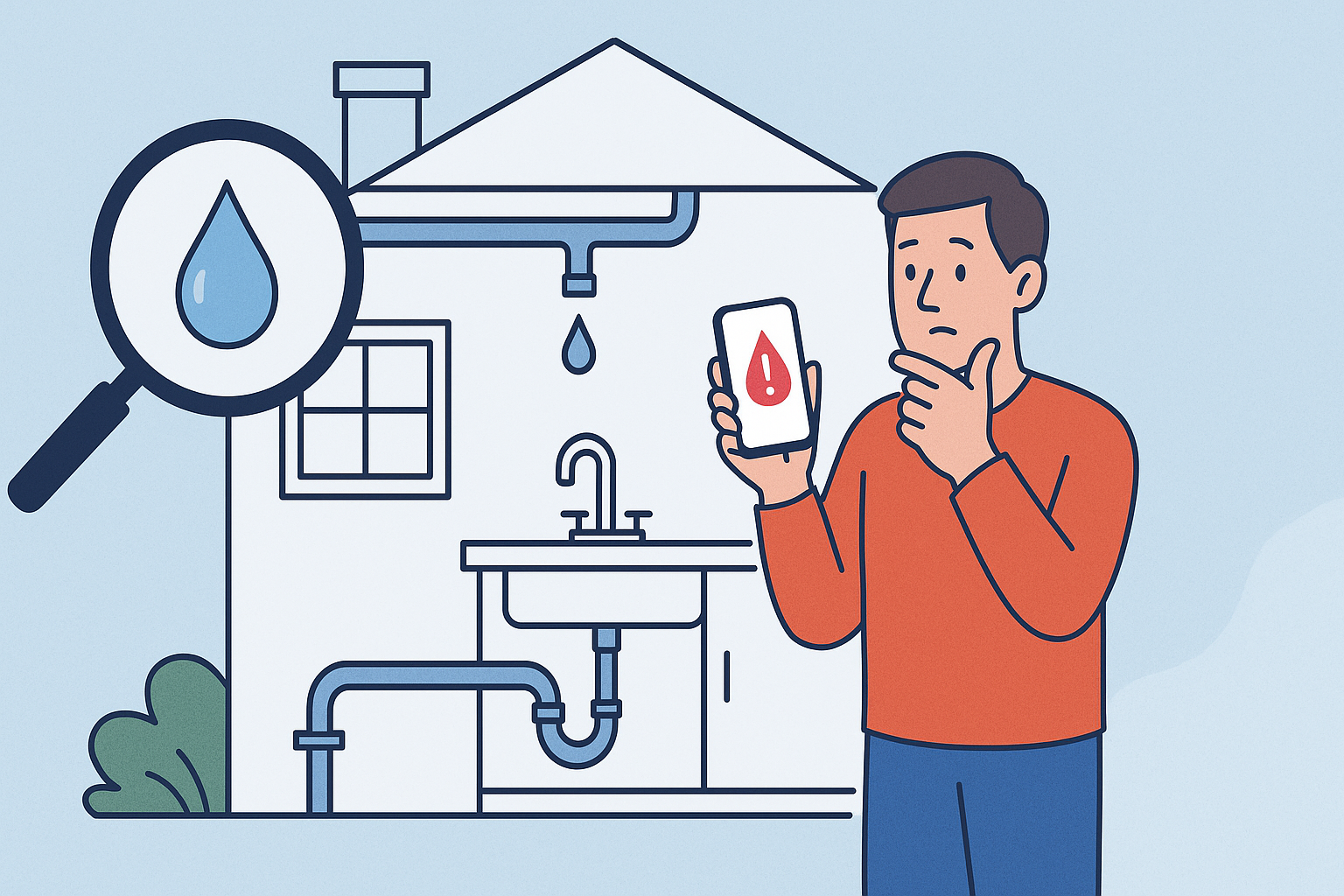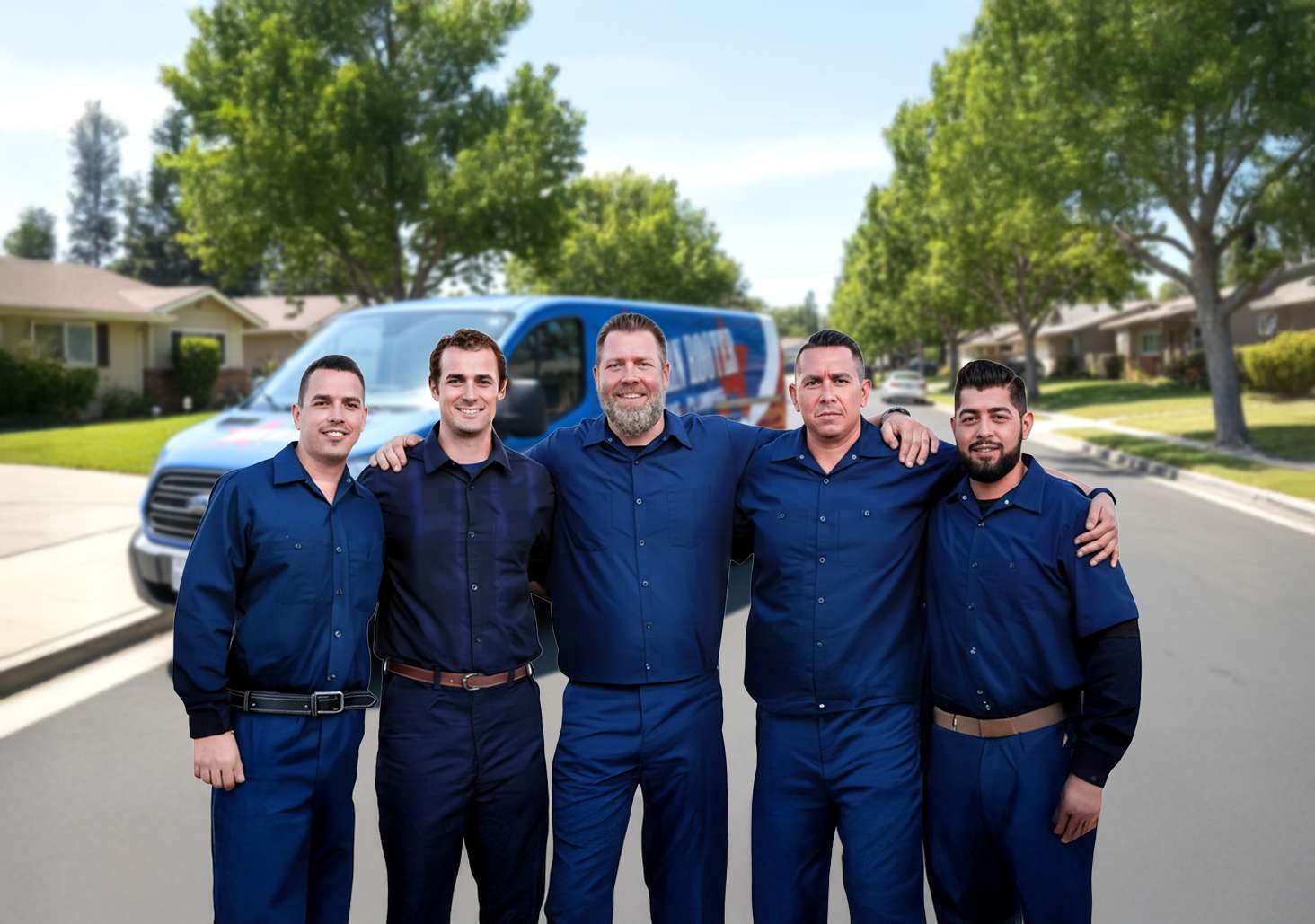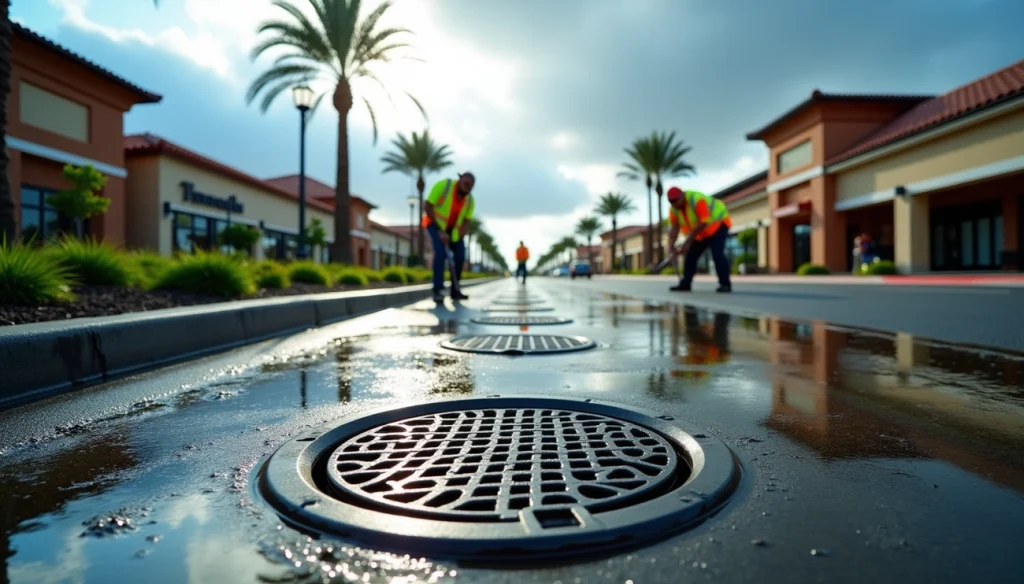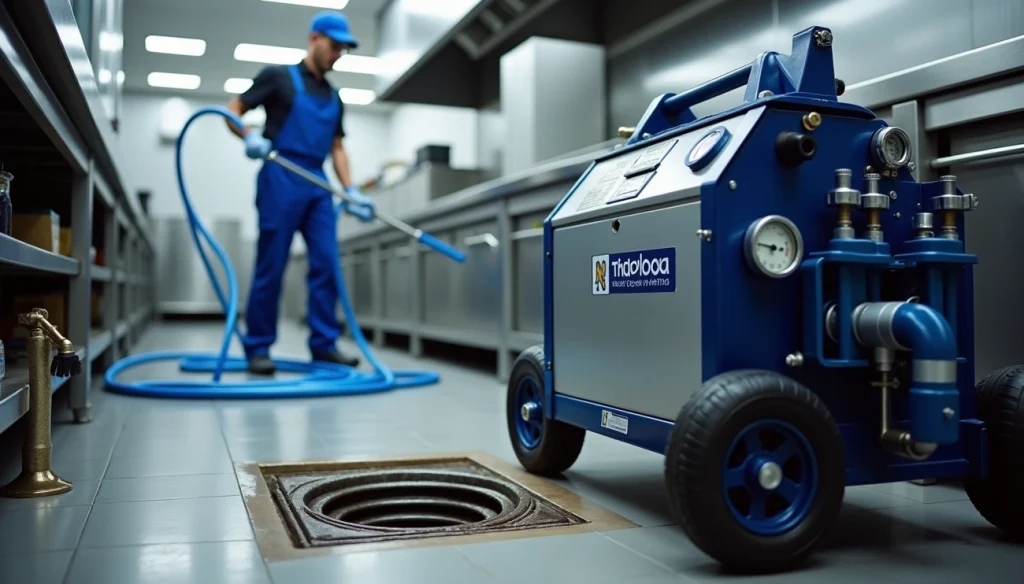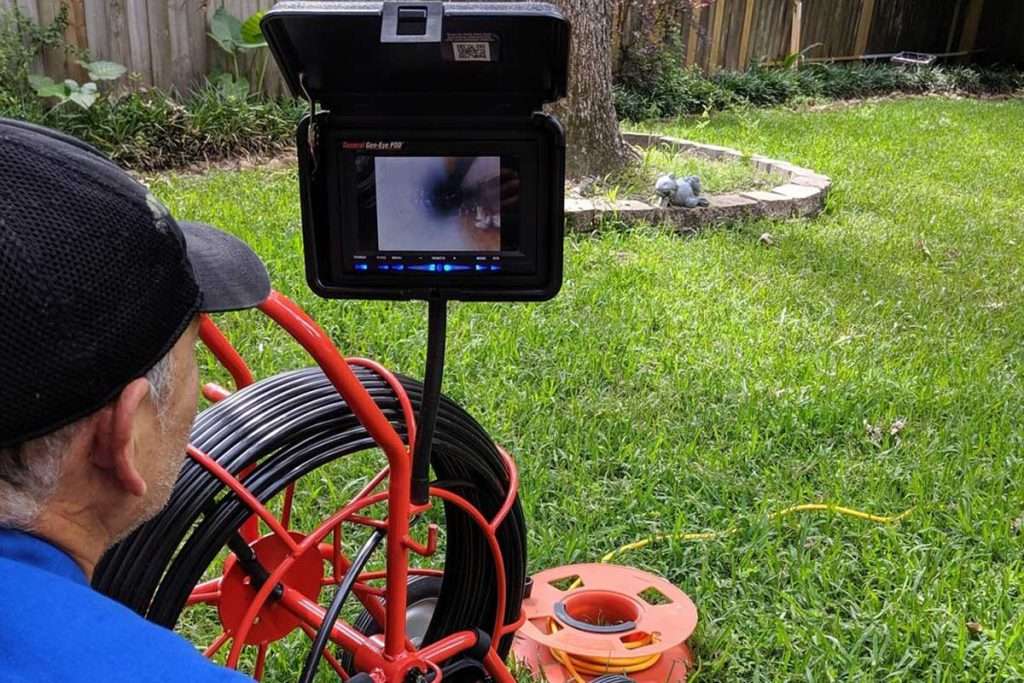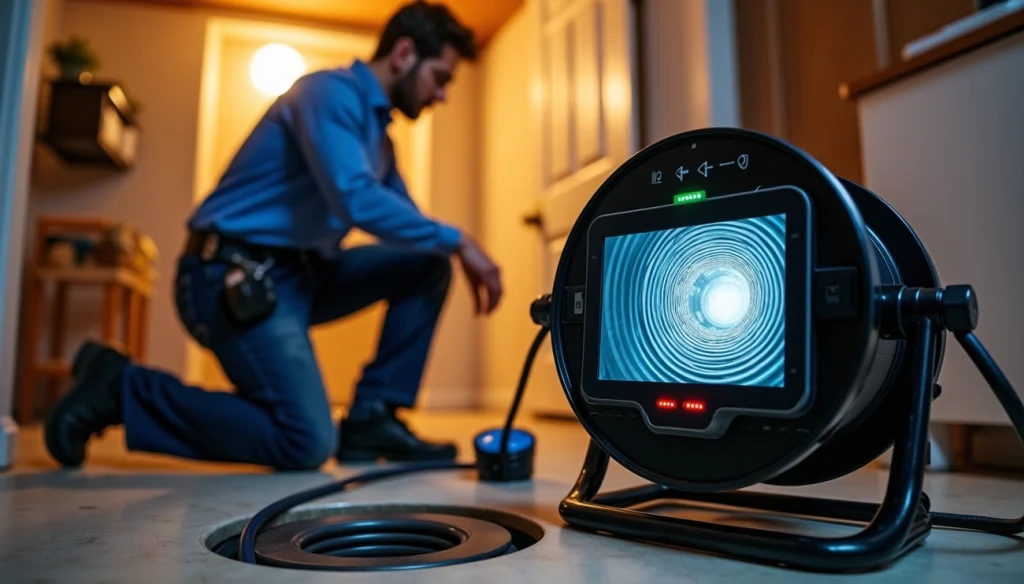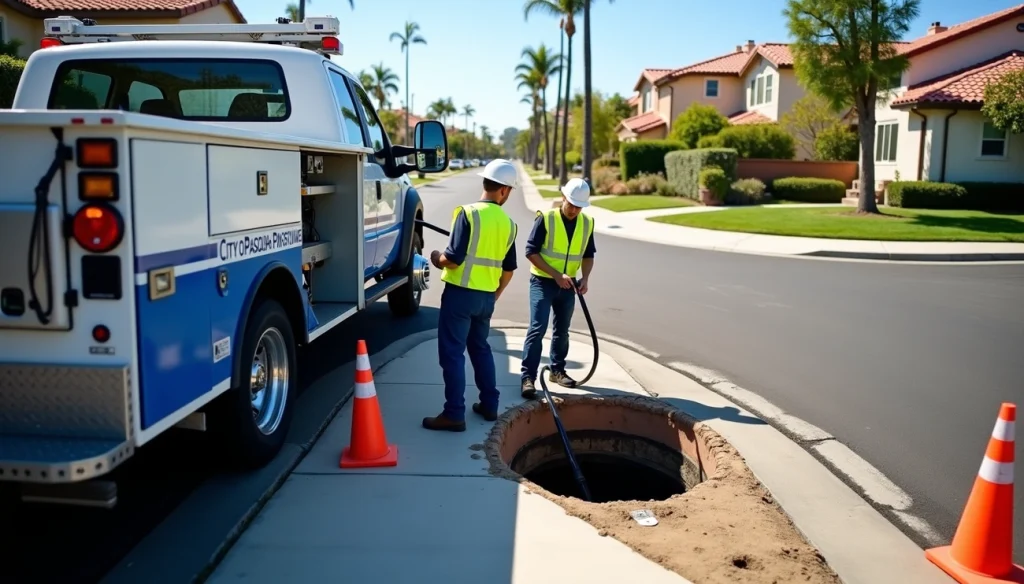Water damage hits millions of Americans yearly, and homeowners want to know how leak detection systems work to protect their properties. The numbers tell the story – water damage makes up 24% of all household insurance claims in the U.S. This costly issue hits hard financially, with average repair costs reaching $11,000 per incident. Recent data shows homeowners paid around $12,514 for repairs between 2017 and 2021.
You’ll save thousands on repairs by learning about water leak detection devices and putting them in your home. These smart devices keep an eye on your plumbing system and warn you about problems before major damage occurs. Leak detectors are smart systems that connect to your home Wi-Fi network and send immediate alerts to your mobile device when they spot moisture or unusual water patterns. A single dripping faucet wastes up to 3,000 gallons of water each year and drives up your water bills by a lot. Money isn’t the only concern – quick detection stops structural damage, prevents mold from growing, and keeps your belongings safe.
What is a leak detector and why it matters
Water plays a crucial role in your home’s plumbing system. The EPA tells us that an average US household wastes 10,000 gallons of water each year due to leaks. This massive waste adds up to a trillion gallons nationwide annually. You can save thousands in repair costs by learning about water damage sources and leak detection technology.
Common causes of water damage in homes
Your home faces several predictable sources of water damage that might go unnoticed until the damage becomes severe:
- Leaking or broken pipes rank among the most common problems. Small drips can cause major damage over time, especially when they hide inside walls or less visited areas of your home.
- Appliance failures create serious risks. Your dishwasher, refrigerator, washing machine, and water heater might leak because of old hoses, worn-out seals, or poor installation.
- Overflow incidents result from unattended running sinks or tubs. These simple mistakes can quickly ruin your flooring, damage carpets, and even destroy ceilings.
- Clogged drain lines in AC units lead to overflowing drain pans that cause severe water damage if left unchecked.
On top of that, it’s worth noting that sewer backups from storms, blocked lines, or tree root invasions can flood your home.
What is a leak detector?
A leak detector helps you spot water leaks in your plumbing system before they cause major damage. These smart devices keep track of water flow, pressure, and moisture levels throughout your home.
Most leak detectors run on batteries and are about the size of a hockey puck. You can place them near leak-prone equipment like water heaters, dishwashers, or under sinks. These devices alert you in several ways:
- Sound alarms give immediate warnings
- Smartphone alerts through Wi-Fi
- Text messages or emails keep you informed remotely
Advanced systems can automatically shut off your home’s water supply if they detect unusual flow patterns. This feature becomes invaluable while you’re away, as it stops small leaks from turning into floods.
How do water leak detectors work?
Leak detection technology comes in different forms. Here are the main types:
Moisture sensors offer the most affordable solution. These devices use metal contacts or probes that signal an alert when water touches them. They react to just a few drops, which helps catch leaks early.
Flow-based systems watch your home’s water usage. Installation happens at your main water line to catch hidden leaks. The system learns your typical usage and alerts you about unusual consumption.
Temperature sensors watch for conditions that might freeze pipes, which helps prevent bursts before they happen.
Advanced systems combine these technologies to give you complete protection. Many modern detectors work with smart home systems and can trigger other devices like speakers, lights, or alarms.
The quickest way to protect your home involves placing leak detectors in high-risk areas such as bathrooms, kitchens, laundry rooms, and basements. This strategy gives you the best chance to catch leaks early before major damage occurs.
How leak detection devices work in smart homes
State-of-the-art smart homes have changed leak detection into a complete water management system. These smart devices watch your property 24/7 and give you peace of mind whether you’re home or thousands of miles away. Let’s look at how leak detection works in smart homes.
Sensor types: moisture, flow, and temperature
Smart leak detection systems use three main sensor types that protect your home in different ways:
Moisture sensors act as your first defense line. They use two or more metal probes or electrodes to detect water through electrical conductivity. Water touching these probes allows electricity to flow between them and triggers an alert. Some systems come with extension cables that sense water along their entire length to cover larger areas.
Flow sensors track the water moving through your pipes. They use mechanical turbines or ultrasonic wavelengths to monitor water usage patterns. These sensors learn your typical usage habits and spot unusual changes that might show a leak. High-definition pressure wave analysis checks tiny changes up to 240 times per second and can tell the difference between normal use (like filling a bath) and problems (like a burst pipe).
Temperature sensors play a vital preventative role by warning you about freezing conditions that could harm pipes. The devices detect when temperatures get close to 32°F, so you can act before pipes crack or burst. Some systems monitor humidity too, which helps prevent mold growth—another common water damage issue.
Smart connectivity and mobile alerts
Smart leak detection stands out because of how these devices talk to you:
Most new systems connect to your home’s WiFi network, while others use different protocols like Zigbee or LoRa for better range. WiFi devices usually work on 2.4GHz frequency bands that reach farther than 5GHz networks.
These systems alert you in several ways:
- Push notifications to your smartphone
- Email alerts
- Text messages
- Phone calls for critical situations
Built-in alarms in many systems reach 100-105 decibels—as loud as a car horn up close. You’ll hear the alert even with your phone off or out of reach.
Voice assistants like Amazon Alexa and Google Assistant let you check updates or turn off alarms by voice command. Some systems work with IFTTT (If This Then That), so you can create custom automations with other smart home devices.
Automatic shut-off valves explained
Advanced leak detection systems are great because they can shut off water automatically:
Motorized valves installed at your main water entry point can cut off the water supply when they detect unusual usage. This happens before major damage occurs.
You can choose between two types:
- Professionally installed units spliced directly into your main water line
- DIY units that sit on quarter-turn valves and use electric motors to operate them
These systems make smart decisions about when to shut off water. They use artificial intelligence called FloSense™ to study your water usage patterns. Daily tests help find small leaks you might miss otherwise.
Battery backup options keep many systems running during power outages. Some store their latest learnings locally and work without WiFi until the connection returns.
Los Angeles and San Bernardino County homeowners can protect their homes from our changing climate with these smart systems. Call Western Rooter now to get your free smart leak detection installation estimate!
Benefits of using a water leak detection device
A leak detection system does more than just alert you about water problems. These smart devices give you complete protection for your property. They help you avoid getting pricey repairs and keep your living environment healthy.
Preventing structural damage
Undetected water leaks can silently damage your home’s foundation and structure. Small, slow leaks weaken wood, drywall, and other building materials as time passes. This leads to warping, sagging, and structural collapse. Water can find its way into the smallest cracks in your home and compromise its structural integrity. A water leak detector spots these problems before they need extensive repairs. This ended up saving thousands in potential reconstruction costs.
Reducing water bills and waste
A dripping faucet wastes about 3,000 gallons of water every year. The EPA reports that an average US household loses nearly 10,000 gallons yearly through leaks. This adds up to a trillion gallons wasted across the nation. You’ll see immediate savings on your monthly utility bills by finding and fixing leaks quickly. Water leak detection devices track abnormal water usage patterns. This helps eliminate waste and shrink your environmental footprint.
Protecting valuables and electronics
Water damage makes up 45% of all interior property damage—more common than fire or theft. Electronics, family heirlooms, important documents, and other irreplaceable items can suffer permanent damage during a water incident. These devices protect your valuables by sending early warnings. Advanced systems can automatically shut off your water supply once they detect leaks. This stops water from reaching your precious belongings.
Health benefits: mold and mildew prevention
Controlling moisture stops mold from growing. The EPA suggests drying wet or damp materials within 24-48 hours after a leak happens. Mold creates allergens, irritants, and maybe even toxic substances. These can trigger allergic reactions, asthma attacks, and breathing problems in everyone, whether they have allergies or not. Leak detection systems spot moisture problems early so you can fix them before mold takes hold.
Peace of mind if you have remote properties
Leak detection systems are a great way to get peace of mind if you travel often or own multiple properties. Modern systems let you watch your property through mobile apps and send live alerts about potential issues. The automatic shut-off features stop water flow right away when they spot problems. This protects your property even if you’re thousands of miles away.
Contact Western Rooter today to get a free estimate on installing a water leak detection device in your Los Angeles or San Bernardino County property!
Challenges and limitations to consider
Leak detection devices give substantial protection, but they come with their own challenges and limitations. Knowing what it all means will help you make better decisions about selecting and maintaining your system.
Installation complexity
Smart system installation can be surprisingly complex, especially when you have to integrate them into your existing plumbing. Professional installation is often the best choice for detailed whole-house solutions with automatic shut-off valves. The work to be done by professionals typically costs 10-30% of the total system price, based on how complex the project is.
Many manufacturers now offer user-friendly units that are easy to install. These systems work right out of the box and don’t need special tools or knowledge. But homes with multiple bathrooms, basements, or attics need extra sensors to protect all vulnerable areas.
Maintenance and battery checks
Leak detection systems need regular attention, contrary to popular belief. Your system will give a proper response at critical moments if you:
- Look over sensors monthly to remove dirt or debris that might cause false alarms
- Run regular tests to verify alarm function
- Keep track of battery levels and replace as needed
Lithium batteries work better than alkaline ones because they last longer and rarely damage the device by leaking. Battery life varies between models – some might work for up to 10 years, while others need replacement after just two years.
Wi-Fi dependency and compatibility issues
Smart leak detectors usually need Wi-Fi to send alerts to your mobile devices. This creates a risk – your system might lose some functions if your internet goes down or batteries die.
A strong Wi-Fi signal is vital for smooth communication. Problems often start with incompatible routers or weak signals. Quality systems include backup features, though – the physical alarm (usually around 105 dB) works even without Wi-Fi.
Some systems need extra hubs to connect, which can add costs and make setup more complex. Others now use different communication methods like Zigbee that provide better range throughout your home.
Western Rooter can help you today with a free estimate on leak detection systems that balance reliability and ease of use!
Where and how to install leak detection systems
The right placement of leak detection systems can mean the difference between catching problems early and getting hit with pricey water damage repairs. Your home’s vulnerable points need careful consideration to maximize these devices’ effectiveness.
High-risk areas: kitchens, bathrooms, basements
Kitchens top the list of leak-prone areas in homes. We focused on complex plumbing and heavy water usage patterns. Your best bet is to place sensors under sinks where pipe connections and faucets often fail. Don’t forget areas near dishwashers since their hoses tend to wear down as time passes.
Bathrooms need careful monitoring due to multiple weak points. Your toilet area needs detectors to catch leaks from the tank, base, or supply line. A toilet leak might seem minor but can waste lots of water and ruin your flooring. The corners by bathtubs and areas under bathroom sinks with S-shaped pipes are also prime spots for sensor placement.
Water damage hits basements harder than any other part of your home. The numbers tell the story – all but one of these basements face water damage issues at some point. Your water heater, exposed pipes, sump pumps, and basement windows with wells are key spots for sensor installation.
Standalone vs. integrated systems
Standalone leak detectors keep things simple and economical. These battery-powered units work on their own and sound alarms at the time moisture shows up. They work great to protect specific high-risk spots without complex setup needs.
Integrated systems merge with your building management system (BMS) or home network. These detailed solutions watch multiple zones at once through central control panels. Larger properties benefit from systems like the EMS series that provide 5-10 input channels for broader coverage.
Tips for optimal sensor placement
To protect your property:
- Put sensors where water collects on the floor instead of drip points
- Watch HVAC systems where condensate leaks often show up
- Keep an eye on refrigerators with ice makers and washing machines
- Check toilets by watching for hissing sounds or using food coloring in tanks
- Watch building amenity areas in commercial properties
Ask Western Rooter today about getting a free estimate on professional leak detection system installation in Los Angeles and San Bernardino Counties!
Conclusion
Protecting Your Home with Leak Detection Technology
Water damage poses a serious threat to your home. It can affect your home’s structural integrity and hit you hard financially. This piece shows how leak detection systems work as your first line of defense against expensive water disasters. These devices give you an effective way to tackle a problem that affects millions of homeowners every year.
The right leak detection system does more than just prevent water damage. Your monthly water bills go down because hidden leaks no longer waste thousands of gallons. On top of that, it helps protect your irreplaceable valuables and stops dangerous mold growth that could harm your family’s health.
Smart technology has changed leak detection from simple alarms to detailed water management systems. You can choose between simple moisture sensors or advanced flow-based systems with automatic shut-off features. These devices give vital protection to your property.
Note that proper installation will give you the best results. Placing sensors in high-risk areas like kitchens, bathrooms, and basements helps catch problems before they turn into major disasters. Some systems need professional installation, but many user-friendly options let you set them up yourself quickly.
Leak detection systems have their limits. You should think about battery maintenance, Wi-Fi dependency, and installation complexity when picking the right system for your home.
Water damage restoration can get pricey – nowhere near what you’d spend on quality leak detection. Los Angeles and San Bernardino County homeowners should make protecting their property against water damage a priority, especially with the region’s changing climate conditions.
Contact Western Rooter today for a free estimate on leak detection systems! Our experts will help you select and install the perfect solution to protect your home against unexpected water damage.


